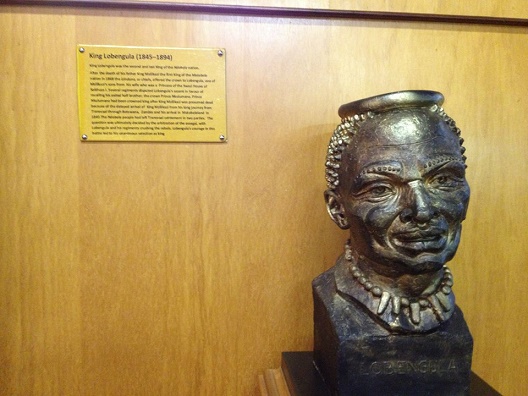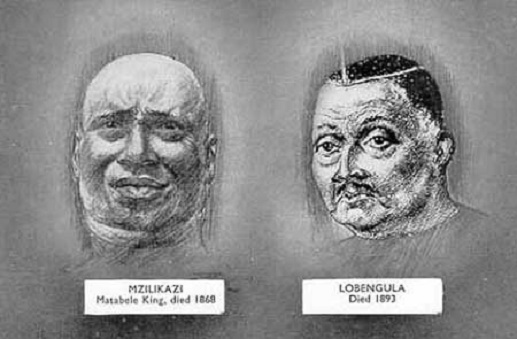History - Lobengula Khumalo (1845–1894)


Lobengula Khumalo (1845–1894) was the second and
last king of the Northern Ndebele people (historically called Matabele
in English). Both names in the Ndebele language mean "the men of the
long shields", a reference to the Ndebele warriors' use of the Zulu
shield and spear.
Birthright
After the death of Mzilikazi, the first king of the
Ndebele nation, in 1868, the izinduna, or chiefs, offered the crown to
Lobengula, one of Mzilikazi's sons from an inferior wife. Several impis
(regiments) disputed Lobengula's ascent, and the question was ultimately
decided by the arbitration of the assegai, with Lobengula and his impis
crushing the rebels. Lobengula's courage in the battle led to his
unanimous selection as king.
Coronation
The coronation of Lobengula took place at
Mhlanhlandlela, one of the principal military towns. The Ndebele nation
assembled in the form of a large semicircle, performed a war dance, and
declared their willingness to fight and die for Lobengula. A great
number of cattle were slaughtered, and the choicest meats were offered
to Mlimo, the Ndebele spiritual leader, and to the dead Mzilikazi. Great
quantities of millet beer were also consumed.
About 10,000 Matabele warriors in full war costume
attended the crowning of Lobengula. Their costumes consisted of a
headdress and short cape made of black ostrich feathers, a kilt made of
leopard or other skins and ornamented with the tails of white cattle.
Around their arms they wore similar tails and around their ankles they
wore rings of brass and other metals. Their weapons consisted of one or
more long spears for throwing and a short stabbing-spear or assegai
(also the principal weapon of the Zulu people). For defence, they
carried large oval shields of ox-hide, either black, white, red, or
speckled according to the impi (regiment) they belonged to.
The Ndebele maintained their position due to the
greater size and tight discipline in the army, to which every
able-bodied man in the tribe owed service. "The Ndebele army, consisting
of 15,000 men in 40 regiments was based around Lobengula's capital of
Bulawayo.
Matabele War.
The First Matabele War began in October 1893, and
the British South Africa Company's overwhelming military force led to
devastating losses for the Ndebele warriors, notably at the Battle of
the Shangani. As early as December 1893, it was reported that Lobengula
had been very sick, but his death sometime in early 1894 was kept a
secret for many months, and the cause of his death remains inconclusive.
By October 1897, the white colonists had successfully settled in much of
the territory known later as Rhodesia, and Matabeleland was no more.